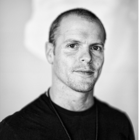Argentina , officially the Argentine Republic (link=no), is a country located mostly in the southern half of South America. Sharing the bulk of the Southern Cone with Chile to the west, the country is also bordered by Bolivia and Paraguay to the north, Brazil to the northeast, Uruguay and the South Atlantic Ocean to the east, and the Drake Passage to the south. With a mainland area of Argentina is the eighth-largest country in the world, the fourth largest in the Americas, the second largest in South America after Brazil, and the largest Spanish-speaking nation. The sovereign state is subdivided into twenty-three provinces (provincias, singular provincia) and one autonomous city (ciudad autónoma), Buenos Aires, which is the federal capital of the nation (Capital Federal) as decided by Congress. The provinces and the capital have their own constitutions, but exist under a federal system. Argentina claims sovereignty over part of Antarctica, the Falkland Islands (Islas Malvinas), and South Georgia and the South Sandwich Islands. The earliest recorded human presence in modern-day Argentina dates back to the Paleolithic period. The Inca Empire expanded to the northwest of the country in Pre-Columbian times. The country has its roots in Spanish colonization of the region during the 16th century. Argentina rose as the successor state of the Viceroyalty of the Río de la Plata, a Spanish overseas viceroyalty founded in 1776. The declaration and fight for independence (1810–1818) was followed by an extended civil war that lasted until 1861, culminating in the country's reorganization as a federation of provinces with Buenos Aires as its capital city. The country thereafter enjoyed relative peace and stability, with several waves of European immigration, mainly Italians and Spaniards, radically reshaping its cultural and demographic outlook; 62.5% of the population has full or partial Italian ancestry, and the Argentine culture has significant connections to the Italian culture. The almost-unparalleled increase in prosperity led to Argentina becoming the seventh wealthiest nation in the world by the early 20th century. Following the Great Depression in the 1930s, Argentina descended into political instability and economic decline that pushed it back into underdevelopment, though it remained among the fifteen richest countries for several decades. Following the death of President Juan Perón in 1974, his widow, Isabel Martínez de Perón, ascended to the presidency. She was overthrown in 1976 by a U.S.-backed coup which installed a right-wing military dictatorship. The military government persecuted and murdered numerous political critics, activists, and leftists in the Dirty War, a period of state terrorism that lasted until the election of Raúl Alfonsín as President in 1983. Several of the junta's leaders were later convicted of their crimes and sentenced to imprisonment. Argentina is a prominent regional power in the Southern Cone and Latin America, and retains its historic status as a middle power in international affairs. Argentina has the second largest economy in South America, the third-largest in Latin America, and membership in the G-15 and G-20 major economies. It is also a founding member of the United Nations, World Bank, World Trade Organization, Mercosur, Union of South American Nations, Community of Latin American and Caribbean States and the Organization of Ibero-American States. Despite its history of economic instability, it ranks second highest in the Human Development Index in Latin America.




